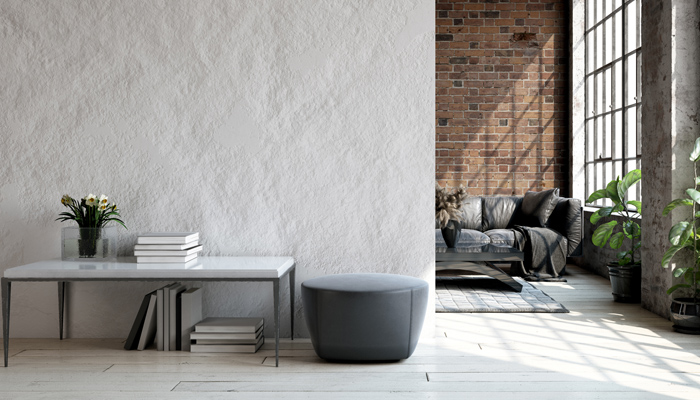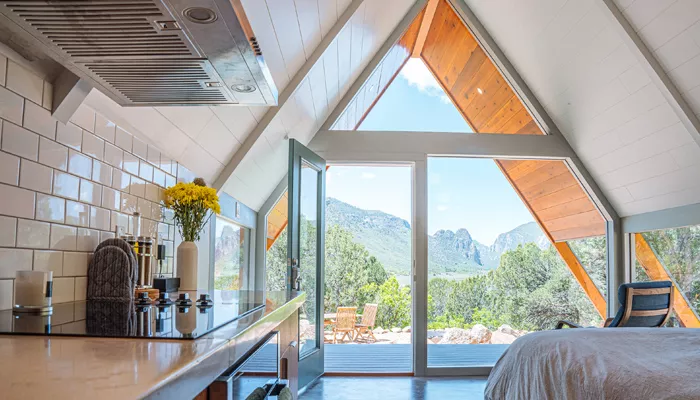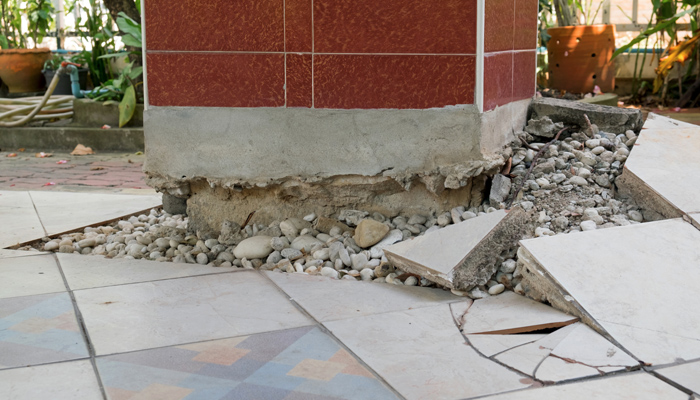Top Ten Renovation Mistakes
1. Picking the wrong property
Ten of the top mistakes most commonly made when renovating a home or property.
One of the very first mistakes people make when renovating is picking the wrong property in the first place.
Do your research into your proposed investment area. If you’re going to live there make sure it’s the right area for you. And if you’re going to rent, look into the types of rental properties in demand, sales and lettings prices, and work out what kind of rent/return you can expect. Don’t forget to look into local regulations/restrictions and planning permissions by getting in touch with the local council.
When you’ve found your ‘fixer-upper’, make sure you get a full survey done. You don’t want to discover hidden problems once it’s already too late… that could blow your renovation budget out of the water.
2. Picking the wrong renovation project
Even if you’ve got the right property, you can still pick the wrong renovations…
If it’s your home it’s still worth thinking about resale value. Unless you plan to stay there forever, plans for your perfect pad should always add value to the property.
Taking away bedrooms to create a grand master suite, or doing away with the back bedroom in favour of a wet room might work for you, but will it work for an average family of four with small children to house and wash?
If you plan to rent the property, ask yourself if a state-of-the-art kitchen and bathroom are going to significantly increase the rent you can realistically charge – given the local market? A three bed terrace in Weston-super-Mare probably doesn’t need a fancy basement gym…
Know your long term plans for the property, know the market, and renovate appropriately.
3. Not following the rules
Depending on the scope of your renovation, you might need planning permission, or building regulations approval. You might also need to tell other interested parties – like leaseholders or neighbours under the Party Wall Act.
If you’re renovating to rent, it’s also worth finding out about local licensing schemes, or any restrictions like Article 4s which mean you can’t make the property into a House of Multiple Occupation.
Renovating and renting both have rules – make sure you know what they are before you make a start.
4. Not having a schedule – or not sticking to it if you do
Failing to plan a project properly really is planning to fail… and the first hurdle is being realistic over how long things will actually take.
These timelines come from The Federation of Master Builders, and might well surprise you:
|
Work |
Time to complete |
|
Extension |
7 months |
|
Loft conversion |
6.5 months |
|
Interior decorating (whole house) |
5 months |
|
New kitchen or bathroom |
5 months |
|
Adding an ensuite to a master bedroom |
5 months |
|
Convert a downstairs cupboard to a toilet |
5 months |
|
Removing an internal wall for an open plan kitchen/diner |
5 months |
Whatever your renovation project, there will be a number of stages, and each step can’t happen until the one before is completed.
Rush things through and you’ll miss important details, miss deadlines, and possibly have to go back to the drawing board (literally) with your architect. In smaller projects – like a new kitchen – not running to time means you might have to reschedule plumbers, electricians or tilers, all at an extra cost.
Meanwhile if you leave things to languish without a schedule, you’ll end up with dead time where you’re incurring more costs with your builder, living in disarray, possibly forking out money on a rental property if you can’t live with the renovations, or not getting any rent in from your rental property if that’s where the work is taking place.
Don’t just leave the scheduling to your builder and hope for the best. Even if project management is in their contract, you need to keep a close eye on what’s happening and when.
5. Going for the cheap option
Picking the very cheapest quote from your potential contractors won’t necessarily save you money in the long term. Don’t scrimp on the design/architecture, and make sure your builders are reputable, registered, with a back book of happy customers.
Likewise, budget materials will just need replacing – particularly in a rental property where wear and tear is always going to be a bigger issue.
6. Going for the expensive option
Don’t get carried away! It’s all too easy to lose track of your budget in the face of shiny samples. Be strict with yourself – especially if you’re refurbishing a rental property.
Unless you’re in the very unusual position of catering for the luxury end of the market you need to stick to basic and practical. Make sure whatever renovations you’re doing are easy to clean, maintain, and replace – whether that’s picking an external cistern/washing machine/fridge instead of a built-in version, or picking hard wearing paint in a neutral shade that can be easily touched up between tenancies.
7. Not building in contingency
It doesn’t matter how many episodes of Grand Designs are aired, this is still one of the biggest mistakes people make when doing renovations of any size.
There are hidden costs and hidden snags in any sort of project, and you should assign 10 to 20 percent of your budget for ‘contingency’, and allow for a 20 to 30 percent increase on estimated completion dates.
8. Underestimating costs
Do your research carefully – look in to the cost of the materials and labour you need, and do the maths as accurately as possible. Don’t rely on economies of scale, or quotes that you haven’t got in writing, and don’t forget to include in your sums fees for planning and building control, fees for arranging any funding, and crucially – VAT.
Contingency isn’t enough. You need contingency for your contingency. If every penny you can afford is ploughed into your budget – even your contingency budget - unexpected or underestimated costs could leave you seriously struggling.
9. Too much DIY
Unless you’re actually an architect, builder, plumber or electrician, get the experts in. DIY mistakes can be costly in terms of both time and money. Use a website like the Federation of Master Builders to find the best professional for the job.
Be realistic about your time and ability to project manage your renovation.
10. Not having the right insurance
If you’re renovating a property – whether it’s an extension, a new kitchen, or just some redecoration between tenancies – check in with your insurance company.
Your regular insurance is unlikely to cover you for extended periods of unoccupancy, or for having work done on your property, and you might need specialist insurance to make sure you’re covered during a period of renovation.
Call our team on 0344 892 1750 to talk through your renovation project, plans, and home and property insurance needs.
About the author
James Cooper is a respected industry leader with over 10 years' experience in the home and property insurance sector. He works across a broad range of insurance product and policy development and delivery, including product development; customer sales and marketing; and P&L accountability.
Date: July 11, 2019
Category: Home and Property











